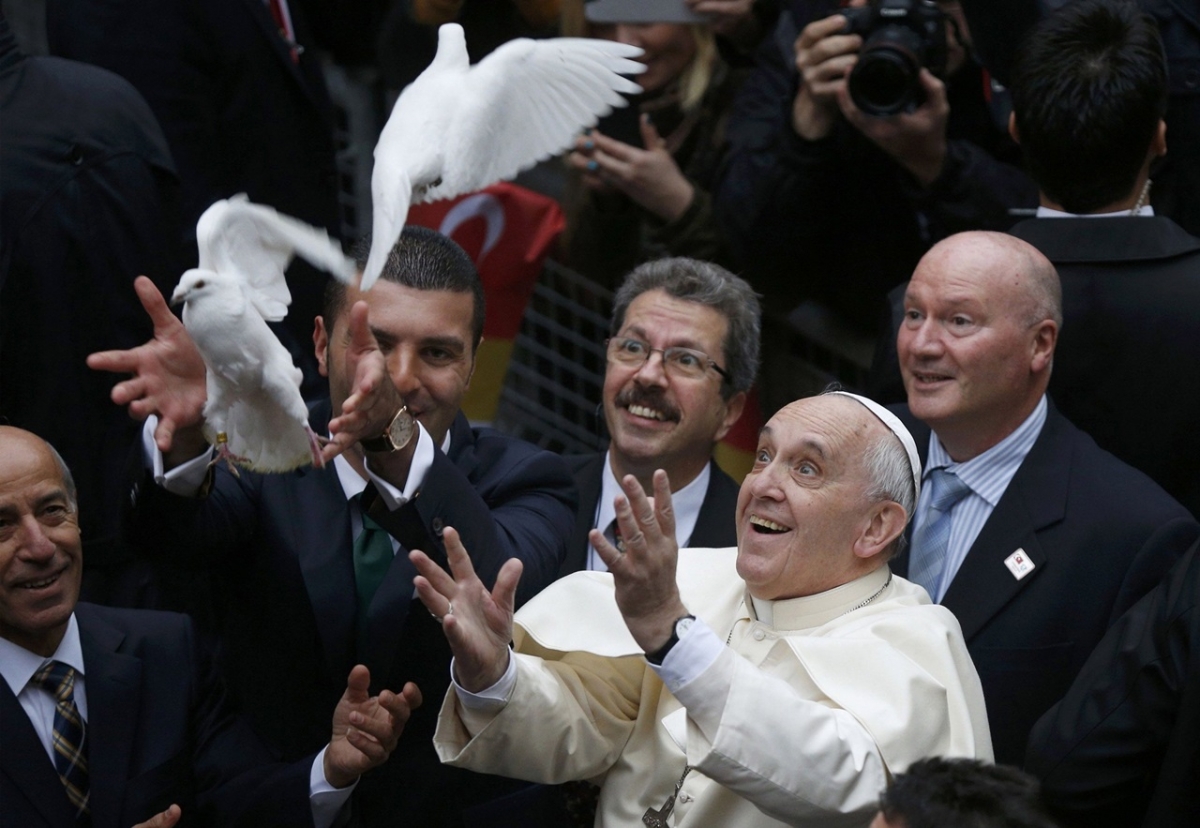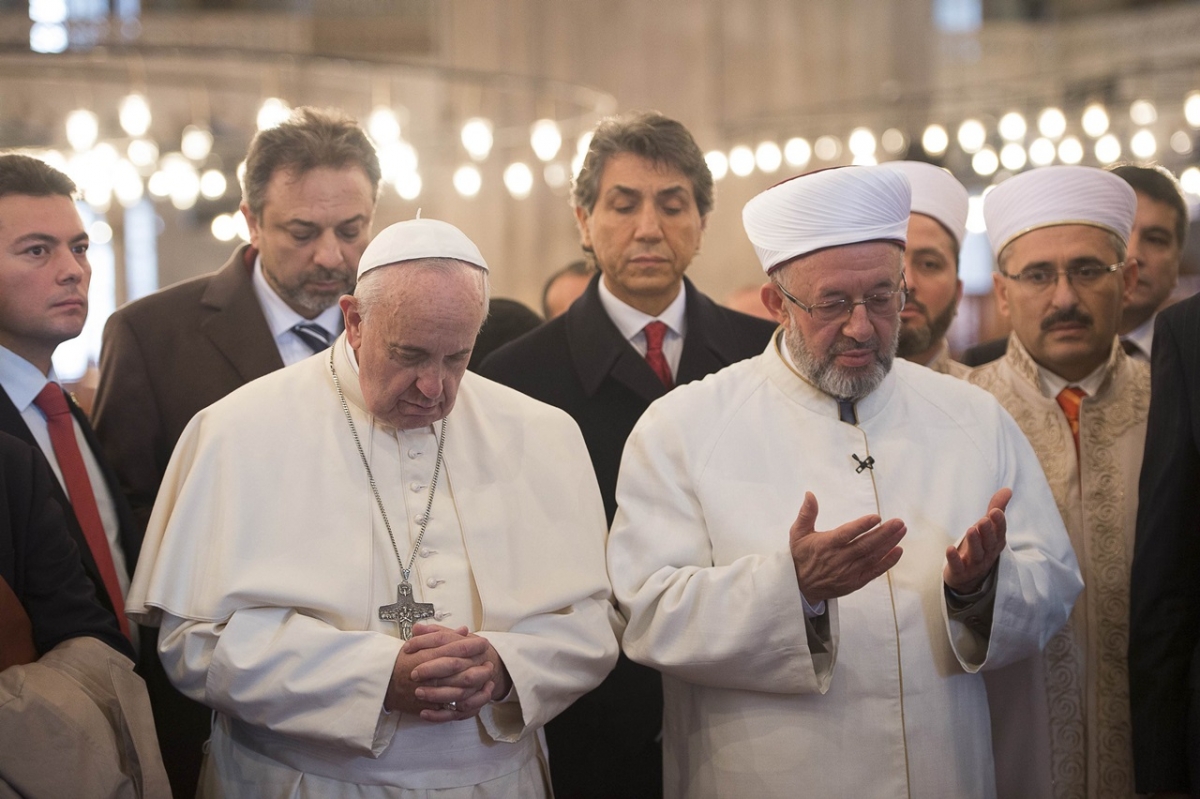Pope Francis Brings Light Of Peace In Visit To Turkey Amid Dark Clouds Of War

Pope Francis began a three-day visit to Turkey on Friday to bring the light of peace and goodwill in a region darkened by the clouds of religious and political conflict.
In a speech during his meeting with Mehmet Görmez, Turkey's most senior Muslim cleric, in Ankara, the Pope denounced the "barbaric violence" being carried out by Islamic extremists in Syria and Iraq.
But at the same time the Holy Father said although it is lawful to stop an unjust aggressor, military intervention alone will not solve the problem.
After meeting Turkish President Tayyip Erdogan, the Pope said a concerted commitment must be made to devote resources "not to weaponry, but to the other noble battles worthy of man -- the fight against hunger and sickness."

The head of the Roman Catholic Church called for inter-religious dialogue to help put an end to all forms of fundamentalism and terrorism even as he cited the importance of freedom of religion and of expression.
"It is essential that all citizens -- Muslim, Jewish and Christian -- both in the provision and practice of the law, enjoy the same rights and respect the same duties," he said.
The Holy Father faces a most delicate mission in the predominantly Muslim but secular country that serves as a temporary home to about two million refugees, including some 100,000 Christians, driven out from Syria and Iraq by Islamic extremist forces.
The 77-year-old Pope is tackling at least three major issues during his visit – the persecution of Christians in the region, the uneasy ties between Christians and Muslims amid the raging conflict in Iraq and Syria, and the millennium -old rift between Catholicism and the Christian Orthodox faith based in Istanbul.

The Pontiff's visit came just days after Islamic militants blew up a convent and church in Mosul, an Iraqi city captured by the jihadists in June.
Thousands of Christians and other minorities have fled Mosul and other places in Iraq and Syria amid threats by the militants to wipe them out if they do not convert to Islam.
The jihadists have either taken over or destroyed numerous churches in the region.
Pope Francis, the head of the world's 1.2 billion Roman Catholics, will also travel to Istanbul on Saturday to meet Ecumenical Patriarch Bartholomew, spiritual leader of some 300 million Orthodox Christians, in an effort to improve ties between the two Christian churches which split almost 1,000 years ago.
Bartholomew broke the ice when he attended Francis's investiture in Rome last year, becoming the first ecumenical patriarch to attend such a ceremony.

After meeting with Bartholomew, the Pope will attend an Orthodox liturgy on Sunday on the occasion of the feast of St. Andrew, a major figure in the Orthodox church similar to St. Peter for Catholics.
"We are eagerly awaiting the visit of our brother, Pope Francis," Bartholomew said in a press statement. "It will be yet another significant step in our positive relations as sister churches."
Meanwhile, prior to his departure for Turkey, Pope Francis encouraged the faithful not to despair the "ugly reality" facing the world.
In his homily on Thursday, the Holy Father said that although sin and corruption often seem to win out over good, Jesus gives a promise of hope which enables us to keep "our heads held high."

"Do not give way to depression: Hope! Reality is ugly: there are many, many cities and people, so many people who are suffering; many wars, so much hatred, so much envy, so much spiritual worldliness and so much corruption. Yes, it's true, (but) all of this will fall!" the Pope said.
The Holy Father said the various evils and trials facing the world "have their time," which is now. He said Christians must endure this time with patience, like Jesus endured his passion and death. While the world is full of suffering and hatred, this will come to an end, he said.
"When we think of the end of time, with all of our sins, with our history, let us think of the banquet which will be freely offered us and let us lift up our heads," the Pope said.





